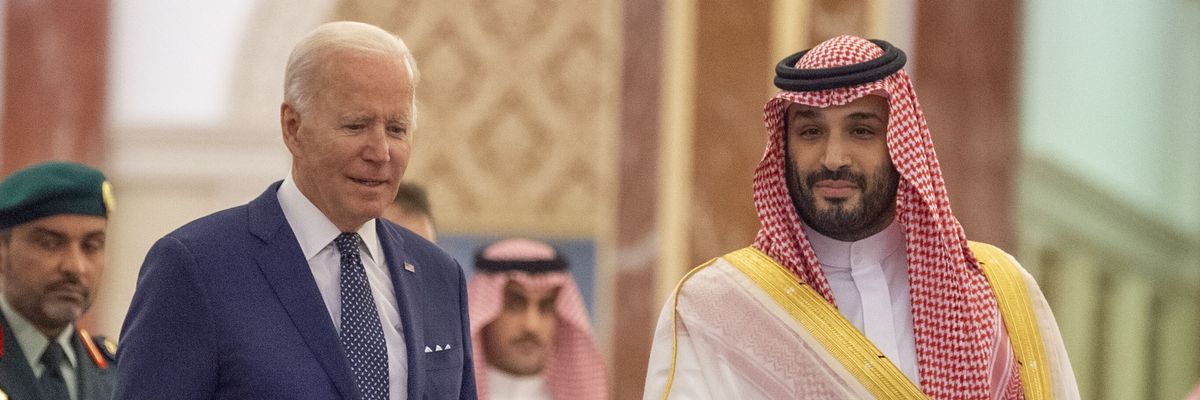One rights advocate on Friday said "nothing" has changed to justify a Biden administration decision to lift a ban on U.S. sales of offensive weapons to Saudi Arabia—but the White House has reportedly briefed Congress on the decision to reverse the policy that's been in place for the last three years.
According toReuters, which cited five sources familiar with the matter, weapons sales could resume as early as next week due to the administration's belief that "the Saudis have met their end of the deal."
President Joe Biden placed the ban on weapons sales in 2021 to pressure Saudi Arabia to end its war against the Houthis in Yemen, who are aligned with Iran.
The war in Yemen has created a humanitarian crisis, with 21.6 million people in need of assistance and protection services, and more than 4.5 million—14% of the population—internally displaced. More than 19,200 civilians, including over 2,300 children, have been killed in airstrikes launched by the Saudi-led coalition.
An administration official told Reuters that there have not been any Saudi airstrikes in Yemen since March 2022, when the Saudis and the Houthis entered a truce brokered by the United Nations.
The decision comes as Hezbollah has vowed to retaliate against Israel following the assassination of Hamas political leader Ismail Haniyeh in Iran.
But Sarah Leah Whitson, executive director of Democracy for the Arab World Now (DAWN), was among those who said the administration aims to secure "future lucrative payouts" for officials including National Security Council adviser Brett McGurk.
"With the Middle East on the brink of a regional war, Gaza's pain worsening, and Americans protesting questionable arms deals, why would the Biden administration choose this moment to double down on weapons for Saudi Arabia?" saidHuffPost reporter Akbar Shahid Ahmed in a thread on the social media platform X. "Let's talk about Brett McGurk."
Ahmed explained that in addition to being a major driver of Biden's policy in Gaza, where Israel has been waging a military assault since last October, McGurk has pushed to lift the Saudi weapons ban. The push has come despite concerns over Yemen as well as other human rights violations, including the 2018 murder of U.S. journalist Jamal Khashoggi, which Saudi Crown Prince Mohammed bin Salman personally approved, according to intelligence reports.
Critics have pointed out to the administration that "the Saudis haven't shown they'll be more responsible with U.S. weapons," said Ahmed, "or addressed concerns about human rights."
"The criticism was largely ignored," he added. "McGurk has grown his influence, tying his Saudi vision to post-war plans for Gaza to craft a message that's now publicly embraced across the administration."
The "long-term implications" of lifting the ban, said Ahmed, include "further implicating the U.S. in potential war crimes after months of American weaponry being used in alarming ways" in Gaza.

